Tattooing is an ancient form of art that has been practiced for centuries all over the world. Even today, it remains a popular form of self-expression. In order to create beautiful tattoos, artists use tattoo machines. These machines are essential tools in the tattooing process, and they need to be properly cared for in order to ensure optimal performance. In this article, we will discuss why tattoo artists wrap their machines and provide some tips on how to best care for your equipment!
What Are Tattoo Machines Wrapped With?
Most machine wraps are made from medical grade plastic which is why they’re usually clear or white. You’ll want to make sure that you get a wrap that’s big enough to cover the entire body of your machine so that there’s no chance of any exposed metal coming into contact with someone’s skin.
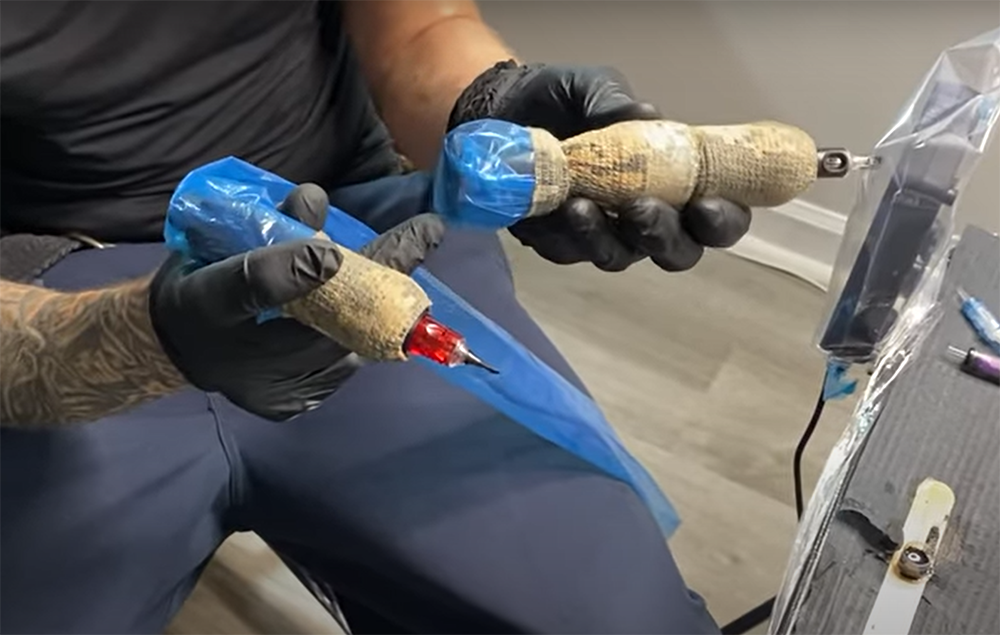
Wrap should fit tightly but not too tightly. You don’t want it to be so loose that it falls off easily, but you also don’t want it to be so tight that it’s cutting off the circulation to your machine.
You also should check for any holes or tears in the wrap before using it. Even a small hole can cause problems if it’s not fixed before you start tattooing.
Plastic is not the only material that can be used to wrap tattoo machines. However, it is the most popular material because it is less likely to cause an allergic reaction and it clings to the machine better than other materials. [1], [2]
Reason Why Tattoo Artists Use Plastic Wraps for Tattoo Machines
Tattoo artists use plastic wraps for their tattoo machines for a variety of reasons. The main reason is to keep the machine clean. By wrapping the machine in plastic, the artist can be sure that no blood or other bodily fluids will come into contact with the machine. And this is crucial as the machine directly contacts the clients skin. By wrapping your tools, you protect both yourself and your client from cross-contamination.
Cross-contamination is dangerous because it can spread diseases like HIV and hepatitis C. These diseases can be deadly, so it’s important to take steps to prevent them from spreading. That’s why it’s so important for tattoo artists to wrap their machines. By doing so, they’re creating a barrier that helps to prevent the spread of these diseases. [1], [2]
How Does Plastic Wrap Maintain Sterility?
There are several reasons why plastic wrap is an effective way to have full control over the safety of the tattoo machine.
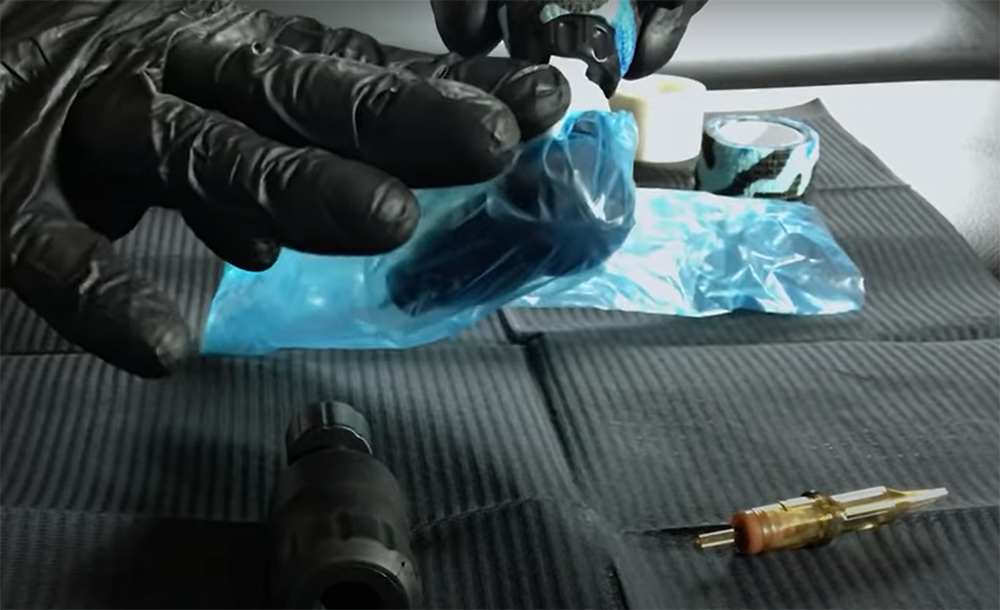
It’s airtight
The first reason is that plastic wrap creates an airtight seal around the tattoo machine. This is crucial because it means that there is no way for any bacteria or other contaminants to come into contact with the machine and then with the client’s skin.
As we mentioned before, this airtight seal prevents cross-contamination. When you use plastic wrap, this risk is eliminated because the wrap forms a barrier between the skin and the machine without absorbing bodily fluids.
Lastly, plastic wrap also helps to keep the area around the tattoo clean. When you are tattooing, ink and blood will inevitably get on the surrounding area. If you were to use a cloth or towel to cover your machine, these fluids would soak into the fabric and could potentially contaminate the machine. However, when you use plastic wrap, these fluids simply sit on top of the wrap.
It’s easy to replace often
Another reason why plastic wrap is effective is that it’s easy to replace. Tattoo artists will often wrap their machines after each use, which ensures that the machine is always clean and sterile.
It takes little to no effort to replace and it’s very affordable, so there’s really no reason not to use it.
Why Cords and Green Soap Bottles Need to Be Taped Too?
You might have noticed that some tattoo artists not only tape their machine but also their cords and green soap bottles. The main reason for that is obviously hygiene.
Tattoo artists are constantly coming into contact with blood and other bodily fluids. This means that there is a risk of cross contamination if they don’t take proper precautions. By taping up their cords and green soap bottles, they are creating a barrier between themselves and any potential contaminants and bacteria. Safety regulations demand that tattoo artists avoid touching any object that isn’t disinfected or sterilized while working on a tattoo. Taping up cords and green soap bottles is just one small way that tattoo artists protect both themselves and their clients from these risks.
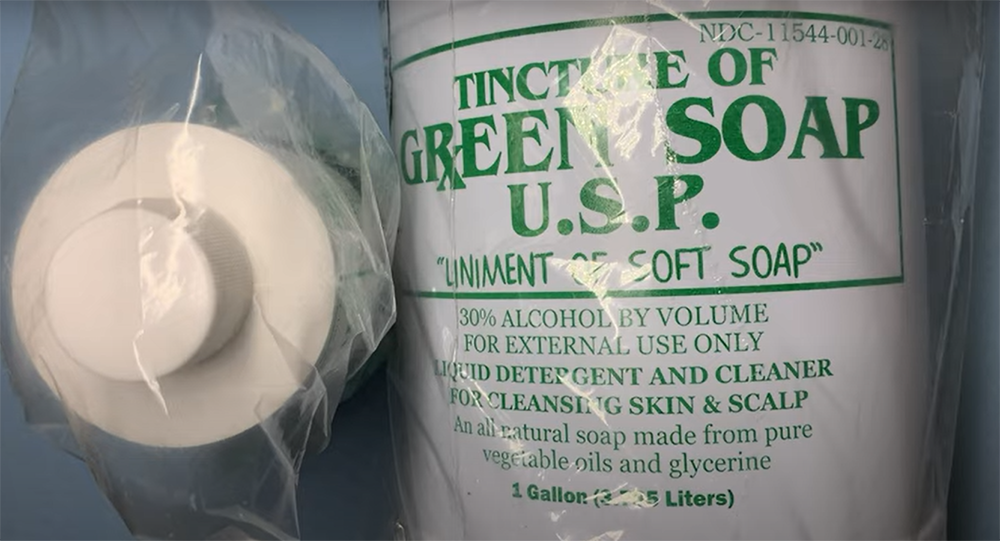
There’s an alternative to that however. You can disinfect and sterilize your cords and green soap bottles after each use. It can be done with a spray sanitizer or a special machine. This will obviously take more time than simply taping them up, but it’s definitely a viable option. [1]
Types of Wraps
There are two types of wraps that you will see tattoo artists use: saran wraps and special cover bags. Let’s take a look at each of them.
Saran wraps
Saran wraps are the type of wrap made out of thin plastic. It is clear and it sticks to itself.
They are the most commonly used type of wrap in the tattoo industry. They are cheap and easy to come by, which makes them a great option for busy shops. Saran wraps can be bought in bulk and are typically used to cover the machine when it is not in use.
Saran wraps have a few benefits that make them ideal for wrapping machines. First, they are clear, so you can easily see your machine while it’s wrapped. This is important because you don’t want to accidentally leave your machine on and damage it. Second, saran wraps are disposable, so you can simply throw them away after each use. This cuts down on the amount of cleaning that you need to do, which is always a bonus.
Special cover bags
Special cover bags are made out of a thicker material and often have a drawstring closure. They come in different sizes to fit different machines, but most will be big enough to fit even the biggest machines. Some brands even make them antistatic so that your machine stays clean and dust-free while it’s stored. They are also sterile and help to keep your machines clean and free of bacteria. You can find special cover bags online or at tattoo supply stores. [1], [2]
What Are Other Hygiene Requirements for a Tattoo Shop?
Besides wrapping their tattoo machines, tattoo artists are required to take a number of precautions to ensure the safety of their clients.
Tattoo shops are regulated by state and local laws, which vary from one area to another. However, there are some general guidelines that all tattoo artists must follow in order to maintain a safe and clean environment.
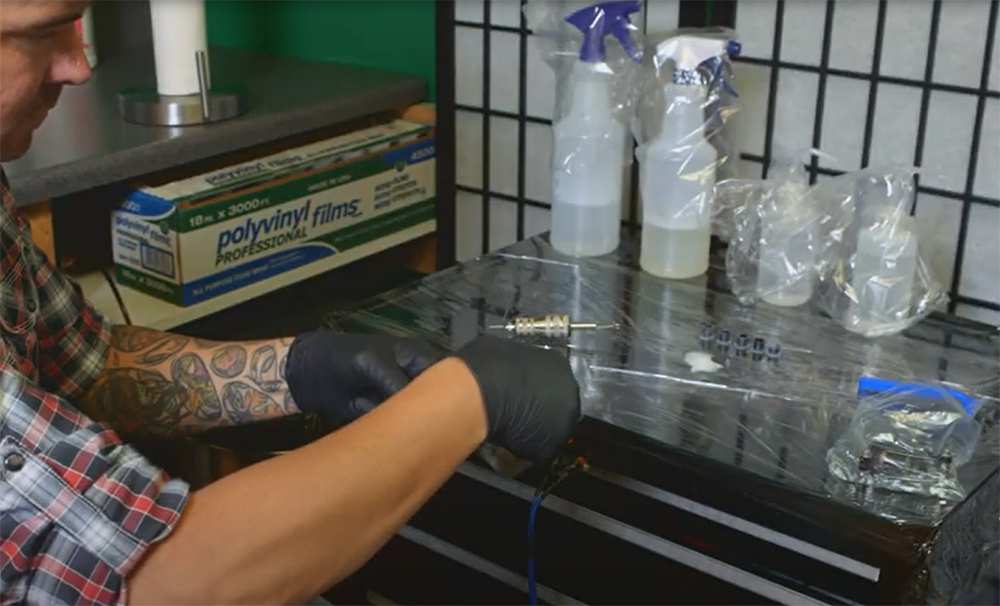
Use of distilled water
It is also important to make sure that all of the tattoo supplies are sterilized before each use. The needles and other sharp objects should be placed in an autoclave, which is a machine that uses steam and pressure to kill bacteria and viruses.
Use of bed covers
Tattoo shops are also generally required to use new, disposable bed covers for every customer. Many artists will also put a fresh layer of medical grade plastic wrap over the top of this for extra protection. This is all in an effort to protect a client from contact with any bloodborne pathogens that may be present on the surfaces in the shop. The area where the tattoo will be done should also be cleaned with a disinfectant before each session.
In addition to these direct hygiene requirements, most shops are also held to high standards when it comes to general cleanliness. This means that common areas like the waiting room and bathrooms should be clean and free of debris. The floors should be mopped and wiped down regularly, and all surfaces should be dusted frequently.
Presence of certificate
The shop must have a valid certification from the local health department before it can operate. Bloodborne Pathogen Training must also be completed by all employees, and a certificate must be posted in a visible location. The certificate should also be up to date as the requirements for certification may change over time. [1], [3]
Tattoo Shop Hygiene Red Flags
The shop is visibly dirty
While you might not be able to tell if the shop is clean just by looking at it, there are some dead giveaways that the shop isn’t up to par. If there’s visible dirt and grime on the floors, walls, or countertops, that’s a sign that the shop isn’t being cleaned regularly. The same goes for any dirty or rusted equipment.
Usage of expired inks
Tattoo inks have an expiration date, and it’s important to make sure that the shop is using fresh inks. Expired inks can cause infections and lead to other complications.
There’s no sharps box
All tattoo shops are required to have a sharps box, which is where used needles and other sharp objects are disposed of. A special box for gloves, rags, and other materials that have come into contact with blood or bodily fluids is also required. If a tatto shop doesn’t have these boxes, that’s a major red flag.
In addition, all shops should have an autoclave on site. This is a machine that uses steam and pressure to sterilize equipment. If the artist doesn’t have access to one, that means they’re not using sterile needles, which puts clients at risk for infection.
Not changing gloves after each use
The most important rule is that tattoo artists must avoid contact with blood and other bodily fluids. This means that they are required to wear gloves when they work and they must dispose of them after each client. They should also wash their hands thoroughly with antibacterial soap before starting the tattooing process.
Usually, tattoo artists use black nitrile gloves because they provide a good grip and they’re less likely to tear.
Tattoo artists should also be wearing masks when they work. This is to protect them from breathing in any blood or other fluids that could contain disease-causing bacteria. [3]
FAQ
Should you wrap your tattoo machine?
If you want to avoid infection and keep your clients safe, then wrapping your machine is a must. Not only does it create a barrier between you and the blood, but it also stops any cross-contamination that could occur.
Wrapping your tattoo machine is a hygiene essential just like washing your hands and using gloves are.
What do you wrap your tattoo gun with?
There are a few reasons why tattoo artists wrap their machines. The most common reason is to protect the machine from any possible contaminants. Blood and other bodily fluids can easily get on the machine during a tattoo session, so wrapping it helps to keep it clean.
Another reason for wrapping is to help reduce vibration. Tattoo machines can be quite loud, and the vibration can cause discomfort for both the artist and the client. Some people claim that wrapping the machine helps to muffle some of the noise and make the tattooing experience more pleasant for everyone involved.
What does tattoo machine wrap do?
Tattoo machine wrap does a few things. It protects the machine from getting dirty or scratched, but most importantly it helps to create an even contact between the needle and the skin. This is important because if the contact isn’t even, it can cause the tattoo to be uneven or even blow out completely.
Useful Video: ✅How to WRAP/BAG your Tattoo machine. 🤘The BEST way to wrap your pen style tattoo machine❗❗
Conclusion
Wrapping your machine is an important part of tattooing, whether you’re using a coil or rotary. Most artists use saran wrap or cover bags to wrap their machines, and most will change the wrap after each client. Tattoo artists wrap their machines in a sterile wrap for several reasons. The wrap is airtight, so it keeps the machine clean and free of contaminants. It’s also easy to replace when it gets dirty or starts to wear out. Plus, the wrap doesn’t trigger any allergic reactions in people who are sensitive to latex or other materials used in the wraps. Wrapping tattoo machines is a great sign that tattoo artists show they are professional and care about their clients.
References:
- https://inkartbykate.com/this-is-why-tattoo-guns-are-covered-in-plastic-while-in-use/
- https://www.bodysjewelryreviews.com/what-does-tattoo-grip-tape-do-a0421624/
- https://www.inkedmag.com/tattoo-artists/13-warning-signs-that-a-tattoo-shop-may-not-be-clean


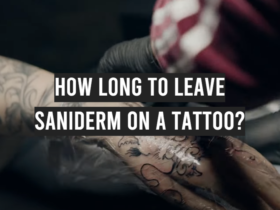
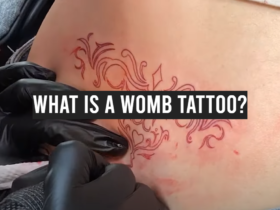

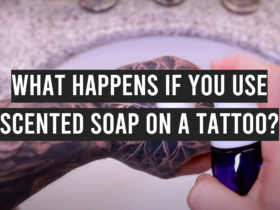
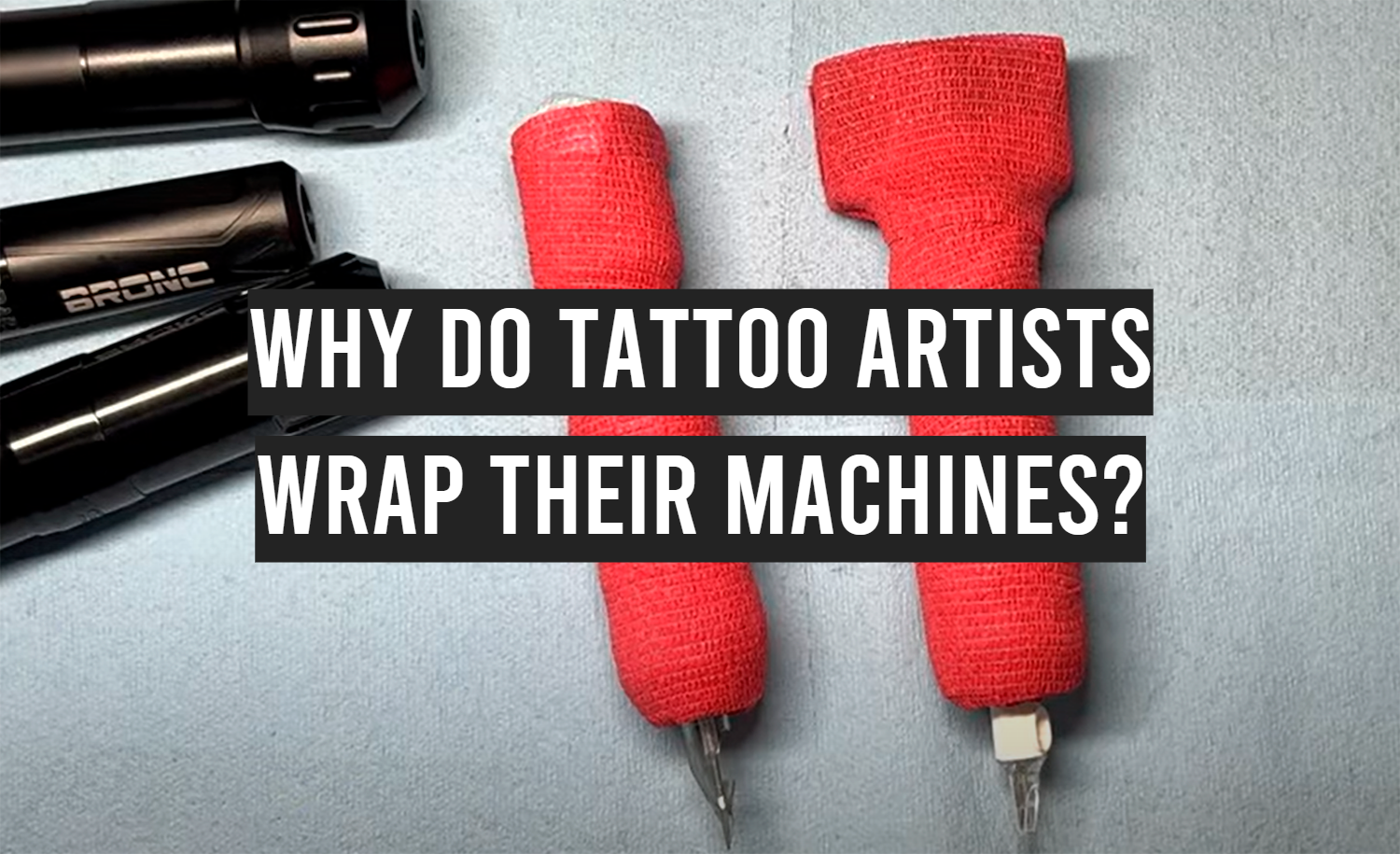

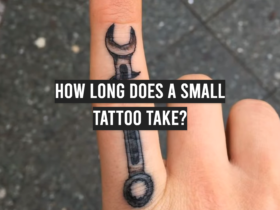
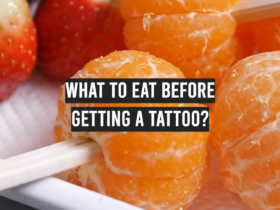
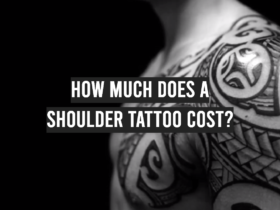
Leave a Review